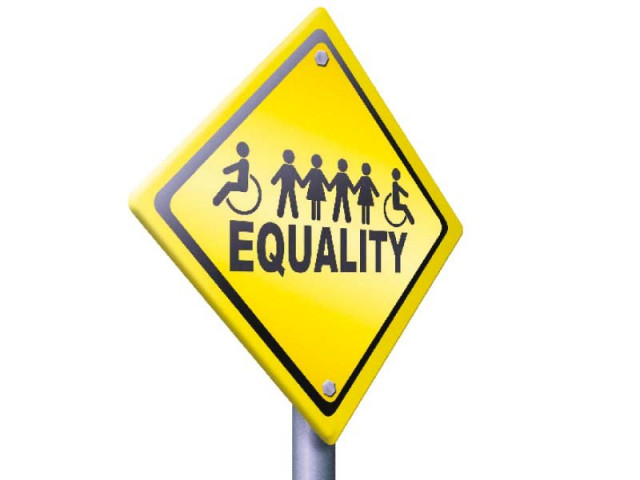Disability rights: ‘Disabled persons account for 15% of population’
Participants say the government should take steps for rehabilitation and empowerment of people with disabilities.

Participants say the government should take steps for rehabilitation and
empowerment of people with disabilities.
“The government must legislate comprehensively to help people with disabilities,” Association of Women for Awareness and Motivation (AWAM) Programme Director Naseem Anthony said on Wednesday.
He was speaking at a capacity building training session, Advocacy Skills for Securing Disability Rights, organised by the AWAM and the Community Based Inclusive Development (CBID Network.)
Anthony said people with disabilities and the organisations that are working for their rights needed to work together. “They must struggle together and follow a rights-based approach rather than the charity and welfare approach,” he said.
“National human rights institutions must implement the Convention on the Rights of Persons with Disabilities (CRPD),” he said.
Asim Zafar, a rights activist from CBID, said people with disabilities accounted for 15 per cent of Pakistan’s population.
He said real disability existed in the society and attitudes of individuals.
“Most Pakistanis sympathise with the disabled but do not do much to help them,” he said.
AWAM Executive Director Nazia Sardar said “minimum standards to lead a healthy life are called human rights.” She said derogatory terms such as crippled, handicapped, disabled, mentally retarded, blind, deaf and dumb must not be used.
“Instead we should use positive terms like persons with disabilities, visually impaired, vocally impaired or intellectually impaired,” she said.
She said the state was responsible for provision of education, health facilities, employment and recreation to people with disabilities.
“They also deserve to live their lives with dignity,” she said.
AWAM Coordinator Shazia George said ineffective laws and policies were not helping the disabled. “The government should carry out the population census, and must introduce comprehensive policies and laws on accessibility standards, needs and proportion of persons with disabilities.”
George said the disability registration process should be friendly. “It should be integrated into a one-window operation at hospitals in all districts of the province… for this the Social Welfare Department, the Labour Department, and the Health Department should improve their coordination,” she said.
National Institute of Special Education (NISE) Deputy Director Muhammad Jawad Afzal said the government was legally bound under the CRPD convention to take steps for rehabilitation and empowerment of the disabled.
“Persons with disabilities face four kinds of barriers – social attitudes, accessibility issues, communication challenges and legislative neglect –which stop them from being successful and progressing in life,” he said.
Saima Aslam of Saaya Association of Persons with Disabilities also spoke on the occasion.
As many as 36 participants from 18 organisations – Community for Social Development, Beacon Foundation, Ittehad Foundation, Social Development Network Organisation, Emaan Foundation, Saaya Association, Babul Ilm, Welfare Educational Society, Insan Dost Association, Women Organisation for Empowerment, Social Development Organisation, Society of Disabled People for Rights and Development, Active Youth Group, Ladies Development Organisation, Caritas Pakistan, National Welfare Foundation – participated in the session.
Published in The Express Tribune, February 20th, 2014.

















COMMENTS
Comments are moderated and generally will be posted if they are on-topic and not abusive.
For more information, please see our Comments FAQ